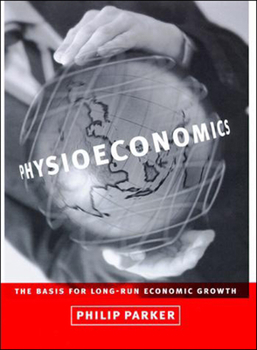Physioeconomics: The Basis for Long-Run Economic Growth
Select Format
Select Condition 
Book Overview
Parker shows how factors such as income, aggregate savings, investment, technology, entrepreneurship, production, and outputs per worker are influenced by the more fundamental principles of physics and physiology. According to Philip Parker, the relationship between physics-based physiology and macroeconomics may come to dominate explanations of economic growth. His argument focuses on the so-called equatorial paradox--the phenomenon that...
Format:Paperback
Language:English
ISBN:0262535564
ISBN13:9780262535564
Release Date:December 2017
Publisher:MIT Press
Length:328 Pages
Weight:0.83 lbs.
Dimensions:0.7" x 5.4" x 8.0"
Age Range:18 years and up
Grade Range:Postsecondary and higher
Customer Reviews
0 rating





